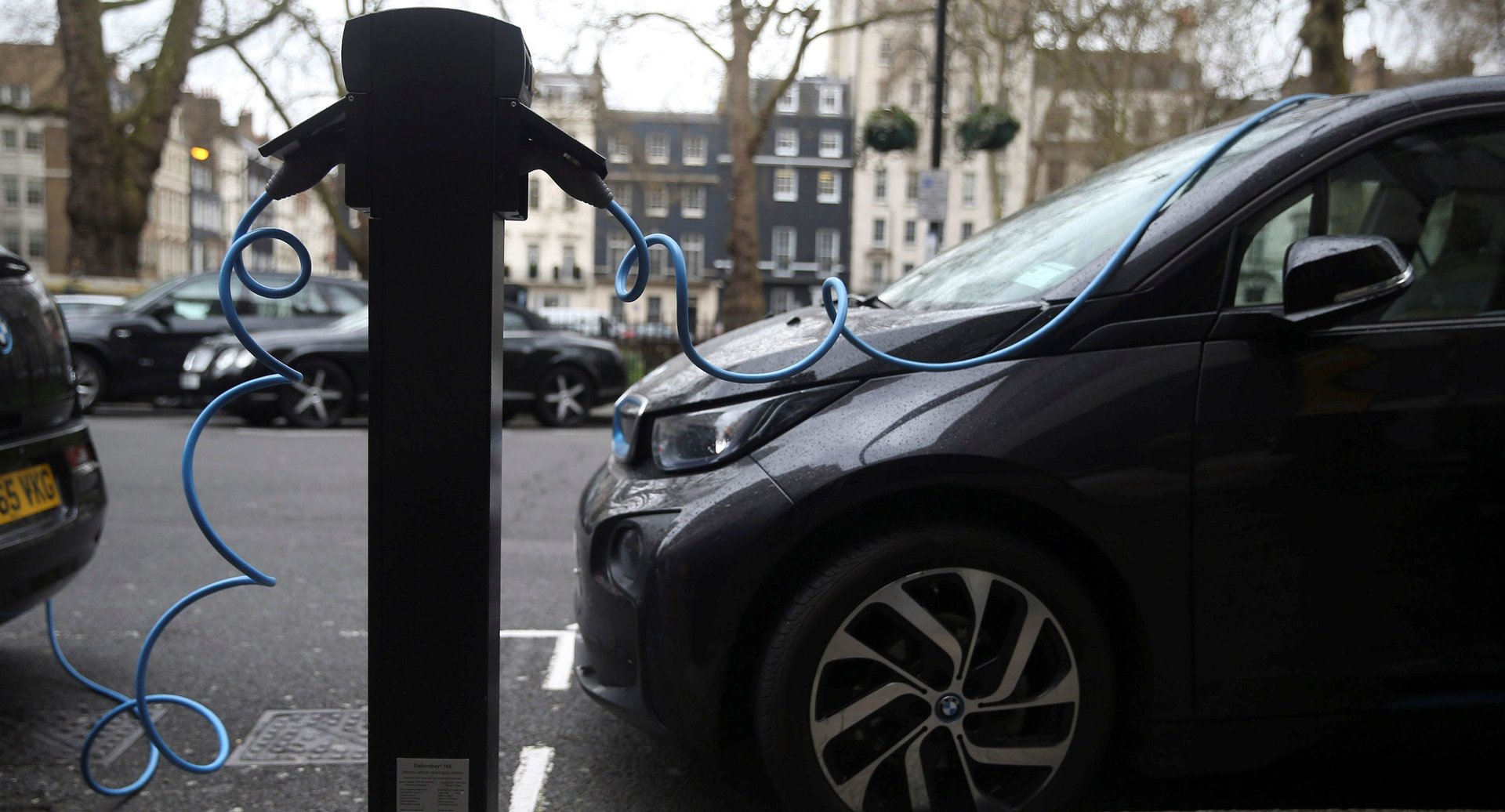The UK is reducing incentives to buy eco-friendly cars
The UK government announced a plan yesterday (Oct. 11) to cut or reduce the subsidies it offers to buyers of eco-friendly vehicles. Starting next month, grants for new plug-in hybrids will be scrapped, and discounts on all-electric cars will be lowered from £4,500 ($5,900) to £3,500.


The UK government announced a plan yesterday (Oct. 11) to cut or reduce the subsidies it offers to buyers of eco-friendly vehicles. Starting next month, grants for new plug-in hybrids will be scrapped, and discounts on all-electric cars will be lowered from £4,500 ($5,900) to £3,500.
The Department for Transport said that since the grants were introduced seven years ago, they have reduced the cost on purchases of 160,000 ultra-low-emission vehicles. The policy change is due to the “ongoing success” the UK has seen in the take-up of greener cars.
Yesterday’s announcement brings to mind a similar one made last year by Norway. It did not go down well.
In Norway, such subsidies were seen by some as being too successful, with electric cars clogging up bus lanes in Oslo. The government attempted to pull back on some of its incentives, but the move was criticized as a “Tesla tax.” Industry and opposition politicians denounced the government for trying to renege on commitments to keep the measures in place until 2020. The plan failed.
There’s a big difference between Norway and the UK. In Norway, the government’s subsidies have been far more successful. Nearly 40% of Norway’s cars are now electric or plug-in hybrid. In the UK, just 1.7% are. Norway easily outpaces other countries, as well.
In its statement yesterday, the UK’s transportation department said that if there’s a rush to buy electric and hybrid cars before the Nov. 9 cut-off date, it may implement the subsidy cuts even sooner. And while it’s withdrawing support for plug-in hybrids, it noted, subsidies for pure electrics remain in place, albeit at reduced levels, and ones for hydrogen fuel-cell vehicles will be the next focus.
Trade and motoring groups in the UK argue the subsidy cuts are premature, warning consumers will turn away from greener cars. It was just three months ago that the government published its “Road to Zero” plan, which vows to reduce vehicle emissions to zero by 2050.